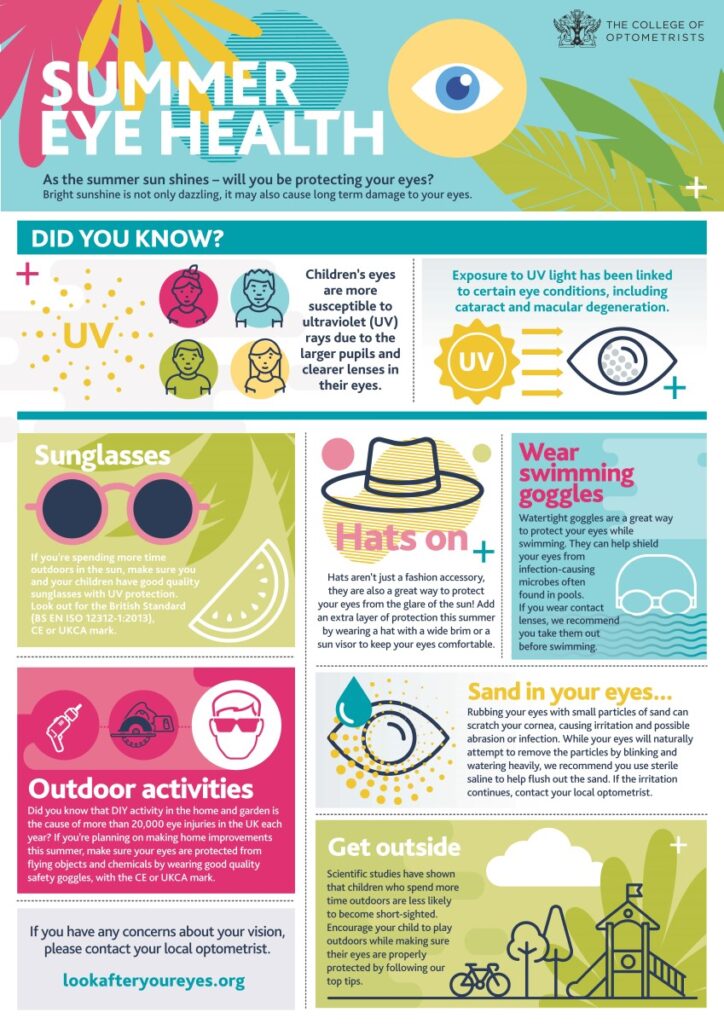
As the summer sun shines – will you be protecting your eyes?
Bright sunshine is not only dazzling, it may also cause long term damage to your eyes.
Ultraviolet (UV) rays from the sun have been linked to the development of some eye conditions, including cataract and macular degeneration, so it’s important to take measures to protect them on sunny days.
Wearing sunglasses, a sun visor, or a hat with a wide brim will provide vital protection from possible damage.
For those who wear spectacles, ask your optometrist about prescription sunglasses. Or there are lots of fashionable clip-on shades available, that won’t damage your frames and don’t cost a fortune. Do check that they conform to the correct standards though. These are listed below.
Because children have larger pupils and clearer lenses then adults, their eyes may be more susceptible damage from ultraviolet (UV) rays, so they need extra special care. Thankfully, children’s sunglasses come in a huge range of trendy styles and colours, to satisfy even the most diva-esque of youngsters.
Checking for the British Standard (ISO 12312-1:2022), CE or UKCA mark when choosing sunglasses or clip on shades will ensure they have good quality UV protection lenses.
Hats aren’t just fashion accessories; they are a great way to protect your eyes from the glare of the sun too. Adding an extra layer of protection in the sun by wearing a hat with a wide brim or a sun visor, will help keep your eyes comfortable and safe.
Watertight goggles are a great way to protect your eyes while swimming. They can help shield and protect eyes from infection-causing microbes that can often be found in open water or even in public pools.
If you wear contact lenses, we recommend you take them out before swimming. You can buy swim goggles with prescription lenses though, so if you need eye wear to help you see while in the water, ask your optometrist for advice.
Did you know that DIY activities in the home or garden are the cause of more than 20,000 eye injuries in the UK each year? If you’re planning on making some home improvements this summer, make sure your eyes are protected from flying objects or chemicals by wearing good quality safety goggles (ISO 16321:2022), CE or UKCA marks.
Sand from the beach can get into your eyes accidentally, especially if there is a sea breeze. If this happens, resist the temptation to rub. Rubbing your eyes with small particles of sand can scratch your cornea, causing irritation and possible abrasions that can lead to infection. Your eyes will naturally attempt to remove the particles by blinking and watering heavily, but we recommend you also use sterile saline to help flush out the sand. If the irritation continues, contact your local optometrist.
Scientific studies have shown that children who spend more time outdoors are less likely to become short-sighted. Encouraging your child to play outdoors, while making sure their eyes are properly protected by following our top tips, will help to support their eye health as they grow and develop.
If you have any concerns about your vision, please contact your local optometrist.